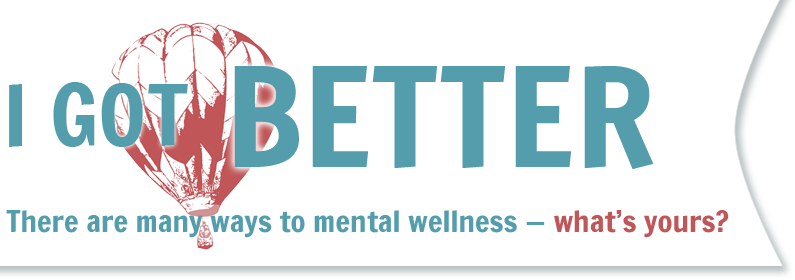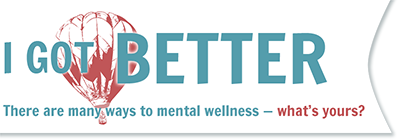An Independent, Self-Directed Life
By Susan

During your mental health care, have you often felt hopeless about your chance of getting better?
When my daughter was a teenager, her therapist told her “this may be as good (well) as your mother ever gets.” Not only was I made to feel hopeless but my child was as well.
Has a mental health provider ever told you that you could reach a personal goal despite your psychiatric diagnosis (for example, education, career, independent housing, relationship, children, etc.)?
At the adult day treatment program I was in, the clinicians stressed that I was more than my mental illness and encouraged me to participate in trainings offered by the NERLC and to apply to attend Certified Peer Specialist training. My case manager encouraged me to do so as well and even after my case was moved to Community Based Flexible Support services, he continued to be supportive and encouraged me to “keep up that recovery.”
If you overcame hopelessness that you could get better from a mental health or emotional problem, was there a turning point for you?
When I began treatment for PTSD, my therapist offered therapies to help me address my traumas. For example, as I was homeless when we began, she suggested EMDR therapy as a way to begin to treat the traumas and alleviate symptoms. It was very successful for me. Also, more importantly, she and the clinicians at the day treatment program weren’t negative – they said that they could help me…I took that to mean that they could help me recover and it’s been working ever since. I successfully “graduated” from my day program 9 months ago and continue to be an active member in my peer community.
Tell us what recovery means to you. How would you define recovery from mental health or emotional problems in your own words?
My recovery is the ability to maintain sobriety (for over 23 years now) and to be able to live an independent, self-directed life. For me, it is being able to deal with symptoms effectively using coping strategies, meeting myself where I’m at in each day, and knowing that I can achieve the goals I set for myself. It is knowing peace, serenity, and contentment…that every day I get better and better regardless of the symptoms I’m experiencing in the moment.
If you could send a brief message to someone receiving mental health care today who is feeling hopeless about getting better, what would you say?
I would say recovery is possible but only if you are willing to do the work necessary to achieve it.
Can you give examples showing you have gotten better from a mental or emotional problem, such as how you are doing well or accomplishing goals you have chosen?
First is sobriety. I maintain this by having a solid spiritual connection with God, attending AA, and total abstinence – I just don’t drink no matter what. Next is being willing to deal with my traumas even though the work is initially painful. Learning that I am a strong woman of dignity, honor and value – that I am worth my time. I use CBT and coping strategies I have been taught to deal with feelings and symptoms such as my fear of people. As a result of all of the above, I have been able to build and maintain strong connections in my community and establish true friendships. I have been able to successfully complete trainings offered by the Northeast Recovery Learning Community and am confident that I will eventually be able to achieve my goal of becoming a Certified Peer Specialist.


